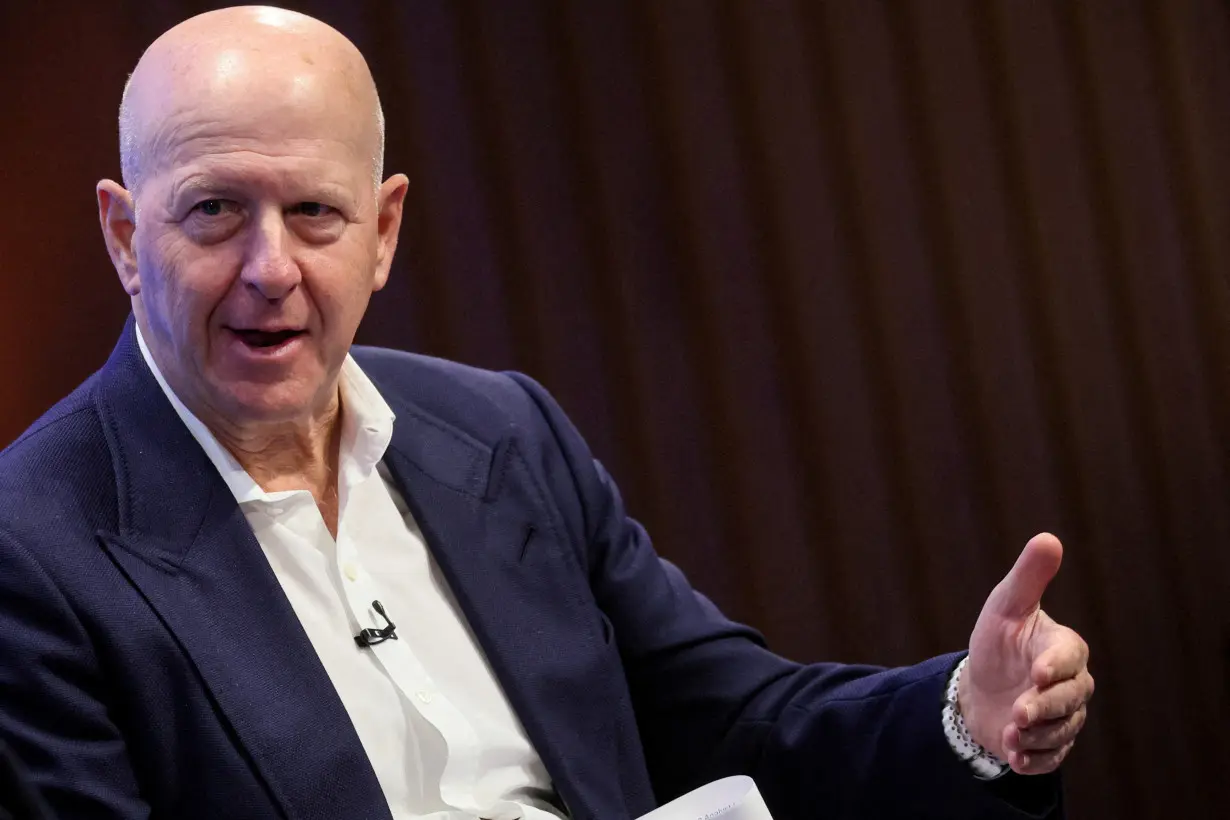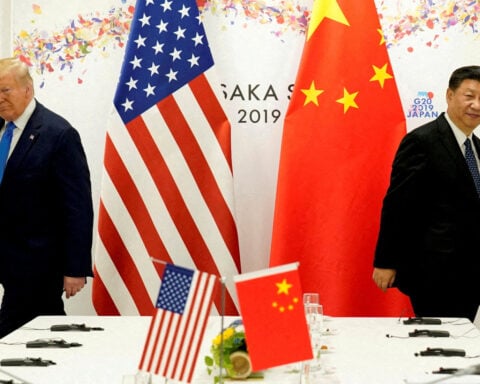By Saeed Azhar and Nupur Anand
SALT LAKE CITY, Utah, NEW YORK (Reuters) -Goldman Sachs and Bank of America shareholders voted against proposals to divide the CEO and chairman roles at both banks on Wednesday, bucking pressure from influential proxy advisers to bolster corporate governance.
Proxy advisers Institutional Shareholder Services (ISS) and Glass Lewis had urged shareholders to support the moves and strip Goldman CEO David Solomon and BofA CEO Brian Moynihan of their chairman roles.
Norway's $1.6 trillion sovereign wealth fund, one of the world's largest investors, had also indicated support for the plan.
The vote "indicates the majority of shareholders are happy with those company performances, as well as pay packages, and didn’t want to risk rocking the boat by altering oversight," said Stephen Biggar, analyst at Argus Research. "At the same time there was definitely traction on the proposal versus last year, so chairman/CEO separation could eventually pass in future years."
At Goldman's annual shareholder meeting, the proposal by the conservative-leaning National Legal and Policy Center (NPLC) garnered 33% of shareholder votes, according to a preliminary tally, compared with 16% last year.
Solomon's "poor decision making" led to substantial losses in its retail division, Luke Perlot, associate director of the NLPC's corporate integrity project, told investors as he presented the proposal.
After the vote failed, Perlot said the CEO's misjudgments "may have been avoided had there been a serious counterweight to his power."
He added: "we are pleased that voting in support doubled from last year, we are disappointed that these clear examples of excesses did not convince a majority to support our proposal."
A Goldman Sachs spokesperson referred to the company's earlier comments on the matter. Its governance committee has maintained that it considers a strong lead independent director, alongside the chairman-CEO role, as most effective at this time.
"We took decisive action to narrow our strategic focus and play to our core strengths," Solomon told the meeting in his opening remarks. "We are delivering on this strategy and putting the firm in a stronger position."
A similar move at Bank of America to separate the CEO and chairman roles also failed after receiving 31% of shareholder votes, compared with 26% last year.
At both banks, investors approved all management proposals, including those on executive compensation, while rejecting all shareholder proposals.
Support for resolutions calling for splitting the chair and CEO roles at S&P 500 companies has averaged around 30% in recent years, according to ISS.
Some analysts had expected more support for such "independence chair" resolutions this year because of the growing complexity of topics taking up corporate leaders' time, including sustainability issues and artificial intelligence.
(Reporting by Saeed Azhar in Salt Lake City and Nupur Anand in New York; Additional reporting by Niket Nishant, Ross Kerber and Tatiana Bautzer; Editing by Lananh Nguyen and Deepa Babington)

 Trump has begun another trade war. Here's a timeline of how we got here
Trump has begun another trade war. Here's a timeline of how we got here
 Canada's leader laments lost friendship with US in town that sheltered stranded Americans after 9/11
Canada's leader laments lost friendship with US in town that sheltered stranded Americans after 9/11
 Chinese EV giant BYD's fourth-quarter profit leaps 73%
Chinese EV giant BYD's fourth-quarter profit leaps 73%
 You're an American in another land? Prepare to talk about the why and how of Trump 2.0
You're an American in another land? Prepare to talk about the why and how of Trump 2.0
 Chalk talk: Star power, top teams and No. 5 seeds headline the women's March Madness Sweet 16
Chalk talk: Star power, top teams and No. 5 seeds headline the women's March Madness Sweet 16
 Purdue returns to Sweet 16 with 76-62 win over McNeese in March Madness
Purdue returns to Sweet 16 with 76-62 win over McNeese in March Madness








